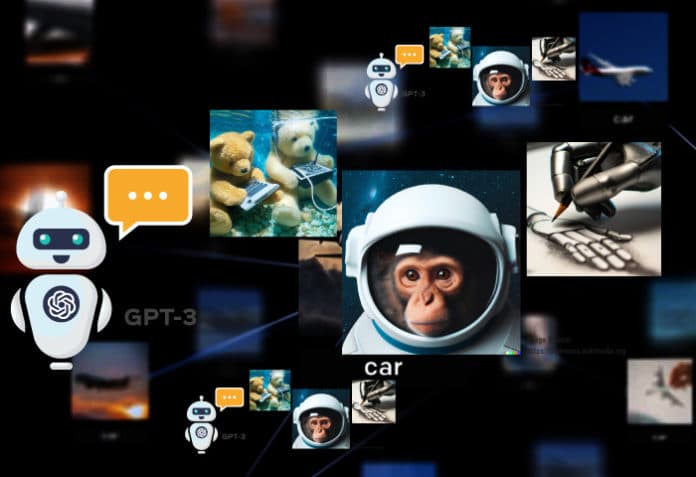Chat GPT, GPT-3 and DALL-E 2 have taken the world by storm. Individuals and businesses must stay updated with these tools, and try and use them well.
ChatGPT (Generative Pre-Trained Transformer) is an Al chatbot tool that was released by OpenAl in November 2022 and instantly invited people to start conversing with it. Within a few months, over a million users were using it to generate content such as blogs, technical documents, product descriptions, and even to write essays in the style of a specific writer.
What can ChatGPT do?
Using ChatGPT, you can do anything that involves language and literature. The possibilities are endless. You can create resumes, original jokes, and explain complex topics in a style that anyone will understand. One can write music in almost any genre; explain code, debug it or even create it; and automatically translate blogs into multiple languages or even write blogs on any topic.
About GPT-3
GPT-3 or Generative Pre-trained Transformer 3 is an artificial intelligence platform created by OpenAI. ChatGPT is a bot that can help create text and simulate real talk with a person, translate speech, etc.
It has 175 billion parameters that make this model one of the most advanced you can find for business use. You can use it to automate customer service, providing a tremendous range of answers to the most popular queries, lowering costs for human operators, and making support faster than ever.
How can GPT-3 help the business environment?
GPT-3 can be used for creating a website layout, coding some easy features, writing marketing copy, creating blog articles, etc. All this can reduce time to market faster. Process automation is what every business needs nowadays to catch up with the world and meet user requirements.
For example, if you own an online retail store, creating a consultant based on the chatbot can help potential buyers choose sizes, combine clothes to look better, choose proper colours, etc.
Due to the ability of the bot to translate into different languages, it becomes easier to enter new markets and expand your business. Providing customer support and product description in the language of the country you promote the company in will increase your chances of success.
OpenAI success story
OpenAl has grown in its technology. High-profile companies like Fidelity Investments, Andreessen Horowitz and Microsoft are showing their interest in building GPT-3 chatbots. Other well-known companies like Tesla, PayPal and Twitter are also backing Open AI technology. Elon Musk, present CEO of Twitter, has invested US$ 10 million in the GPT-3 project.
Does GPT-3 pose a risk for e-commerce companies?
Any information the OpenAl system receives is then used to further train it. The more people interact with it for various uses, the more it “learns.” And that data absorption can include some of a company’s sensitive coding and data, which obviously could be very problematic for e-commerce companies.
Recently, an engineer at Amazon asked the chatbot to answer interview questions for a coding position with the company. GPT-3 got all of the technical coding questions correct, which shows just how much GPT-3 has learned about coding in its time online.
Google and OpenAI
The idea to include chatbots in search engines is new but Google will not be the first to do so. Search engines like NeevaAI and You.com have already beaten Google to this, and both are currently offering that service in beta. Google, the current dominant search engine with billions of users, is likely to adopt the technology once it is more confident about GPT-3’s accuracy. Google has invested US$ 400 million in artificial intelligence startup Anthropic to develop a new GPT-3 chatbot.
DALL-E 2 and the artwork business
DALL-E 2 is an Al system created by OpenAI that automatically creates original art and imagery based on natural language prompts.
This means you type in a description, and DALL-E 2 creates a piece of art or an image based on what you type. You can even tell DALL-E 2 to create the image in a specific style. Ask for an image of ‘a Shiba Inu dog wearing a beret and black turtleneck’, and DALL-E 2 will create the artwork shown in Figure 1.

More than 1.5 million users are now actively creating over 2 million images per day with DALL-E 2. These include artists, creative directors, authors and architects. Over 100,000 users are sharing their creations and feedback in the Open AI community.
DALL-E 2 uses sophisticated deep learning Al called a ‘generative model’ (powered by neural networks) to not only create images from natural language, but also understand the relationships between objects in the image. It uses a process called ‘diffusion’, which starts with a pattern of random dots and gradually alters that pattern towards an image when it recognises specific aspects of that image.
However, the flip side of DALL-E 2 is that it could severely disrupt the work and earning power of many conventional designers, artists, photographers, and visual content creators.
ChatGPT, GPT-3 and DALL-E 2 have been presented to the world as an experiment, and users are contributing to their development with their inputs. But companies are using this experimental output in the real world already. It’s important to keep in mind that powerful and complex systems like Chat ChatGPT, GPT-3 and DALL-E 2 can be creatively used or misused. What they require is an iterative deployment approach.
These tools can soon become an integral part of our lives, erasing language and art barriers and enabling better understanding of complicated scenarios.













































































